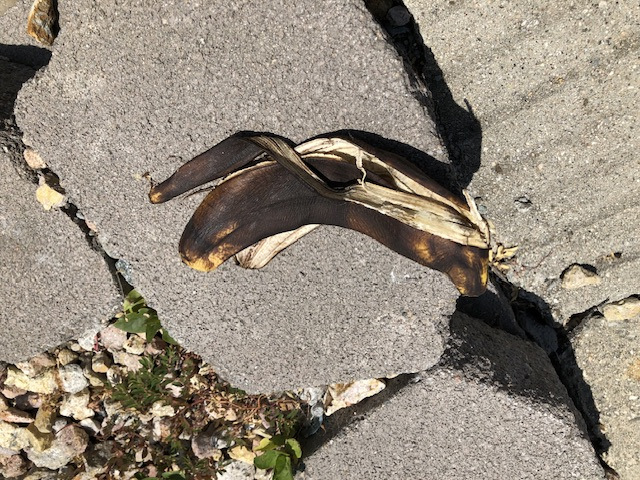UNITED STATES—A slave by any other name, it is something we loathe, revile, despise and despite the fact that more often than not, we crave to be told what to do. That’s what Sam Delaney did–and a grand scale. So much had been happening, and simply by defending his interests—which he defended on behalf of those who he employed—he had absorbed the collective sins of the Boston oligarchy who’d run the company into the ground during the years of the bread lines and the soup kitchens. Afterward, Sam would get to hear from people in the offices and plantations of Bananaland, “You saved the day.”
He felt like a folk hero.
To hear that from people in the Isthmus, as well as in Boston, New York and Bogotá—well it sure felt good. Sam was anxious to resume the pastimes of retirement, his astral flights of Brahams, Beethoven and Jean Sibelius, and mathematics. Then he could always go back to the Bhagavad Gita, not heavily dog-eared but maimed by one of the two dachshunds his son kept around the house. He could read, “By becoming fixed in this knowledge, one can attain to the transcendental nature like My Own. Thus established, one is not born at the time of creation or disturbed at the time of dissolution.” Nice ice-cold healing water on the face, to face the facts.
Though he felt ageless inside, he knew from the return look in the medicine-cabinet mirror that there was a gulf between inside and outside, where he was old. Luckier than most, ever since he was dismissed by that jowly prig Phineas Cox in Washington D.C. and all of Chamelecón could have been lost. Sam had to take the law into his own hands. After that he was a gangster. People might open a door for him, out of fear. Now they held the door, not because he was one of the most powerful men in the nation of but because he was their elder. His hair was thinning and though the hand habitually waved the forelock back from his forehead, there wasn’t that much to wave back any more.
It had gone gray, but he assured himself, a gray with the tenacious charcoal hue which he owed to his Bassarabian forebears. The dog-messenger life, oh whimpering insomniac dog, ever telling him now, you are old, you are no more a spring chicken.
Like Rebecca told him, one night up late in the kitchen in Audubon Place now, “You’re no longer a spring chicken, Nathan, but it will always be spring for you, Mr. Sam Delaney.”
Fear of failure had been the Fountain of Youth, now he was in the range where people he knew were dying, statistically they had had enough living, their organs wore out. The kidney, the liver, the lungs? A fine tailor in New York who made the suit double breasted, and the man he saw in the mirror was still an imposing figure with his own taste for loud bold woven patterns, wide chalk stripes, contrasted by the restrained ties that (to Sam’s delight) almost cost as much as the whole suit. In paradox, he basked. His black icy glare usually was enough to win.
He achieved this importance. He was one of the richest men in America, so rich, in fact, that serious people on Wall Street bought the story, concocted by Bernard Lukasey, that Sam also really owned all the pineapples in Hawaii, and that the other company Standard branched out so to avoid off now he called the bluff of the Boston prudes.
He had seen it all, and been it all: Jew and Goy, quiet and reserved, brash and bold, elderly in youth and now young in dawning old age. They used to say in New Orleans, “Buying a banana from Sam is almost as good as going to the barbershop.” He knew everyone and everyone knew him, quick as the black gaze hit, it would disappear, and be erased by some easy joke.
After the charade of trying to get a house in Boston, he met it all with a smile. At some level, Sam’s acquisitiveness was driven by agoraphobia, a ghastly fear of poverty, and a fleeing it. A force that drives the money beast. I can still fart, thank God, that ought to be enough. There was something atavistic about it. The phone is my bone, I chew and chew and chew and chew on it. Didn’t matter if you had all the gold in Fort Knox.
“Didn’t that bug you?” asked one of the Harvard-Yale boys that came attached with Allied Fruit.
“Yeah it bugged the crap out of my Black Irish ass.,” Sam said with a scowl. And before Hopkins Delaney!!”
“No no no. That was just provincial palaver.”
“He faced it with a smile,” one of the Harvard-Yale boys that came attached with Allied Fruit. And it was a smile that gladdened souls, perfected as a banana peddler in New Orleans, and attracting scrutiny from the Sherman Antitrust act. And the rumors that he was the owner of his competition. Let people believe what they want to believe, Sam believed.
“He regretted that he’d gone for Delaney, and it took a go-around the Boston prudes to show their true colors.”
Maybe that was the sweetest victory of all. He said, F- ‘em, they don’t want to sell. And I don’t want to buy.”
So old Sam rented a suite in the Ritz-Carlton with thick mulberry curtains and crystal chandeliers. It had a dining room, a library, and a dumbwaiter that went directly to the kitchen. It was cheaper and could be written off as a business expense. He thanked the good people of Boston after that, Sam did.
To be continued…
Graydon is the Wizard of Fiction.






